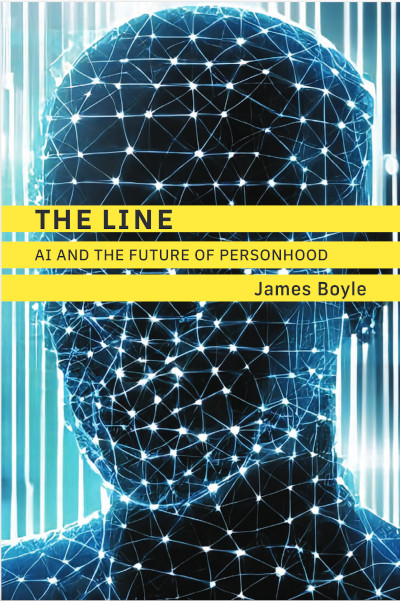by Mark R. DeLong

Duke law professor James Boyle said an article on AI personhood gave him some trouble. When he circulated it over a decade ago, he recalled, “Most of the law professors and judges who read it were polite enough to say the arguments were thought provoking, but they clearly thought the topic was the purest kind of science fiction, idle speculation devoid of any practical implication in our lifetimes.” Written in 2010, the article, “Endowed by Their Creator?: The Future of Constitutional Personhood,” made its way online in March 2011 and appeared in print later that year. Now, thirteen years later, Boyle’s “science fiction” of personhood has shed enough fiction and fantasy to become worryingly plausible, and Boyle has refined and expanded his ideas in that 2011 article into a new thoughtful and compelling book.
In the garb of Large Language Models and Deep Learning, Artificial Intelligence has shocked us with their uncanny fluency, even though we “know” that under the hood the sentences come from clanky computerized mechanisms, a twenty-first century version of the Mechanical Turk. ChatGPT’s language displays only the utterance of a “stochastic parrot,” to use Emily Bender’s label. Yet, despite knowing the absence of a GPT’ed self or computerized consciousness, we can’t help but be amazed or even a tad threatened when an amiable ChatGPT, Gemini, or other chatbot responds to our “prompt” with (mostly) clear prose. We might even fantasize that there’s a person in there, somewhere.
Boyle’s new book, The Line: AI and the Future of Personhood (The MIT Press, 2024) forecasts contours of arguments, both legal and moral, that are likely to trace new boundaries of personhood. “There is a line,” he writes in his introduction. “It is a line that separates persons—entities with moral and legal rights—from nonpersons, things, animals, machines—stuff we can buy, sell, or destroy. In moral and legal terms, it is the line between subject and object.”
The line, Boyle claims, will be redrawn. Freshly, probably incessantly, argued. Messily plotted and retraced. Read more »
